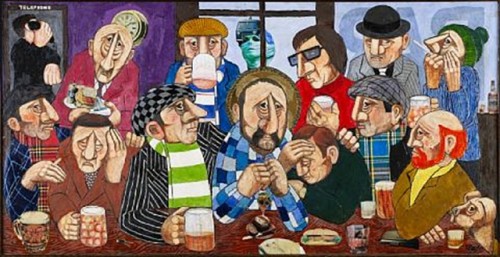Having thought I had nothing to say this morning, I am now using my blog as an alternative to writing to the BT, something which could worsen an already inflamed situation if I wasn't very careful. I am shocked and embarrassed by the aggression I sense in the letter(s) written by an Ayrshire Baptist as part of a long, and generally well-tempered, exchange on the complex and sensitive topic of assisted dying. Differing views have been expressed, usually very graciously, and it has been an interesting and helpful exchange. What troubles me is Mr Angry's judgementalism and lack of sensitivity towards those who feel differently than he does. Especially troubling was his use of the expression 'coward and fool' to describe someone who would choose to die in such a way, and then his justification of this phrase after someone objected with some very harsh turns of phrase and some very simplistic use of the sixth Commandment. If he wants to play the proof text game - something I heartily disapprove of - then maybe he ought to check out Matthew 5:22 before he puts pen to paper.
And now I've breached my Dad's rule of say nothing if you can't say something nice... oh dear, perhaps I need to go away and reflect on Matthew 7:3-4.
This is a very complex topic, one my new Theological Reflection group has asked to explore in September, and there are some good resources out there offering Christian perspectives from people of differing conclusions. Once I've finished reading them I may post some comments on them.
From unthinking acceptance and foot-stamping legalism, may the good Lord deliver us.
